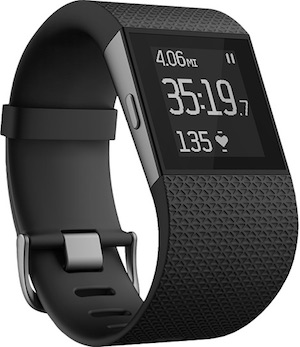 Fitbit is facing yet another class action suit, this time over its heart rate monitoring, which plaintiffs claim is inaccurate to a dangerous degree.
Fitbit is facing yet another class action suit, this time over its heart rate monitoring, which plaintiffs claim is inaccurate to a dangerous degree.
“Plaintiffs and many consumers like them have experienced — and testing confirms — that the PurePulse trackers consistently mis-record heart rates by a very significant margin, particularly during exercise,” the suit alleges. “This failure did not keep Fitbit from heavily promoting the heart rate monitoring feature of the PurePulse Trackers and profiting handsomely from it. In doing so, Fitbit defrauded the public and cheated its customers.”
The suit, filed in the northern district court of California, includes three plaintiffs representing the nationwide class of all customers that purchased Fitbit Charge HR or Fitbit Surge devices, the two wearables that include heart rate tracking.
One plaintiff, an 82-year-old woman, alleges that her device under-estimated her heart rate by 80 bpm. If she had tried to get her heart rate, as measured by the Fitbit, up to a healthy level, she could have exceeded the maximum recommended heart rate for her age, thus endangering herself.
This case also comes with an interesting twist: after Fitbit’s previous class action suits, the company added an anti-arbitration clause to the device’s user agreement. The suit alleges that this is, itself, an unfair and deceptive business practice as users were only informed of it after they purchased the device.
Fitbit responded to the suit in an emailed statement to MobiHealthNews, wherein they both defended the accuracy of the devices and issued a reminder that Fitbit is not, and does not claim to be, a medical device.
“We do not believe this case has merit,” a spokesperson wrote. “Fitbit stands behind our heart rate technology and strongly disagrees with the statements made in the complaint and plans to vigorously defend the lawsuit. Fitbit is committed to making the best clip and wrist-based activity trackers on the market. Our team has performed and continues to perform internal studies to validate our products’ performance.”
“PurePulse provides better overall heart rate tracking than cardio machines at the gym, as it tracks your heart rate continuously — even while you’re not at the gym or working out,” they continued. “But it’s also important to note that Fitbit trackers are designed to provide meaningful data to our users to help them reach their health and fitness goals, and are not intended to be scientific or medical devices.”
Fitbit’s other two class-action suits are still pending. One, very similar to the latest case, alleged the inaccuracy of Fitbit’s sleep-tracking features. Another revolves around the skin rashes caused by some Fitbit Force units, which the company eventually chose to recall. The company is also facing an altogether different legal challenge around its heart rate tracking features: Valencell claims they infringe on its patents.
Read More – Source: Fitbit’s heart rate monitoring accuracy questioned in class action suit | MobiHealthNews